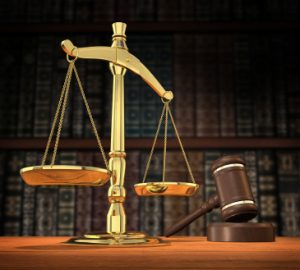
Most spirits & wine appraisers and valuation laws apply directly to Real Property Appraisers (i.e. buildings and land) and not directly to Personal Property Appraisers (i.e. wine, spirits, wineries, breweries, distilleries, and or residential contents). Unlike Real Property Appraisers, currently are no federal or state licensing requirements for personal property appraisers (i.e. wine appraisers). However, while the current federal and state laws do not mandate licensing, there are federal and state standards defined in existing laws that define “what is an appraisal report” and “who is a designated appraiser” or spirits and wine valuation expert.
Ethical and professional appraisers will have earned an appraisal designation from an accredited appraisal association or valuation organization. Appraisal designations are typically awarded after the appraiser has successfully passed competency tests concerning appraisal theory, appraisal methodology, and professional ethics. Appraiser designation coursework involves a minimum period of at least eighteen months and typically two years or more. Winery & Wine Appraisals founder Tom DiNardo has earned six appraisal designations, and he has completed the equivalent of at least twelve years of class room appraisal theory and appraisal methodology training. The following information will assist you in spotting potential fraudulent appraisers.
One of the most comprehensive spirits & wine appraisers laws is the Uniform Standards of Professional Appraisal Practice (USPAP). USPAP was created by the United States Congress in 1986 after 1985 Savings and Loan scandal. This federal law uniformly created the standards for all professional appraisers operating in the United States. According to the USPAP law it is a violation for appraisers to charge you a percentage of the value, or commission, based upon the value of the item(s) being appraised. This is the best way for you to spot an individual who is not a qualified appraiser, and or who is fraudulently claiming to be a certified appraiser. All legitimately qualified professional appraisers work on either an hourly rate and or on a flat fee basis only. All appraisers will maintain appraiser designations and also have passed the current USPAP. The USPAP accredited appraiser will also be registered with the Appraisal Foundation in Washington D.C.
On August 17, 2006 U.S. Congress passed the Pension Protection Act or “PPA” (P.L. #109-280 Stat. 708 [2006]) which further amended Section 1219 of the PPA in setting up new definitions and requirements outlining what is a “Qualified Appraisal” and who is a “Qualified Appraiser” as recognized by the Internal Revenue Service (IRS) and also the U.S. Department of Treasury. This law was further clarified in the subsequent IRS Notice 2006-96.
Conscientious consumers of appraiser services will invest their money wisely the first time and contract the services of a professionally qualified liquor, spirits & wine appraiser, and or wine valuations expert. Do not hesitate to directly ask the potential appraiser the following questions. (1) Where did you obtain your appraiser designation, and how many years of study were involved? (2) Are you accredited in the latest USPAP edition? (3) Please describe you formal spirits & wine education? Here is an example of a qualified spirits and wine appraiser resume. Tom DiNardo (SPA, CAA, AOA-CM, ISA-AM & ASA Candidate) is a Daubert Qualified consulting spirits & wine expert and expert witness. Visit Tom DiNardo (The Wine Zealot) YouTube Channel to learn more about spirits & wine appraisals.